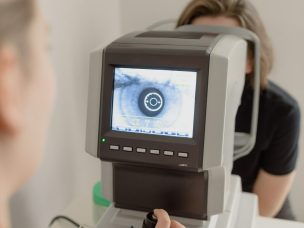Although age-related cataracts and wet AMD co-occur in many patients, the timing of cataract surgery in patients with wet AMD is controversial. This article, published in Acta Ophthalmologica, analyzed the outcomes of patients with wet AMD who underwent cataract surgery.
The study included 111 patients with a mean age of 78.9 ± 5.6 years. Both best-corrected visual acuity and central subfield macular thickness were analyzed before and after the surgery. In addition, the total number of antivascular endothelial growth factor (anti-VEGF) injections before and after surgery and the total number of systemic and topical medications taken were recorded for comparative analysis.
Ultimately, it was found that patients with wet AMD who underwent cataract surgery achieved satisfactory outcomes with controlled wet AMD disease activity, including significantly increased visual acuity, significantly decreased central subfield macular thickness, and longer anti-VEGF treatment intervals.
These findings held regardless of wet AMD subtype, macular status at the time of surgery, type II diabetes status, systemic and topical medication use, and total number of anti-VEGF injections.
In conclusion, the researchers suggest that cataract surgery should not be delayed in patients with wet AMD [1].
Source:
[1] Karesvuo, P., Elbaz, U., Achiron, A., Hecht, I., Kaarniranta, K., & Tuuminen, R. (2021). Effect of cataract surgery on wet age‐related macular degeneration activity. Acta Ophthalmologica. https://doi.org/10.1111/aos.14864










